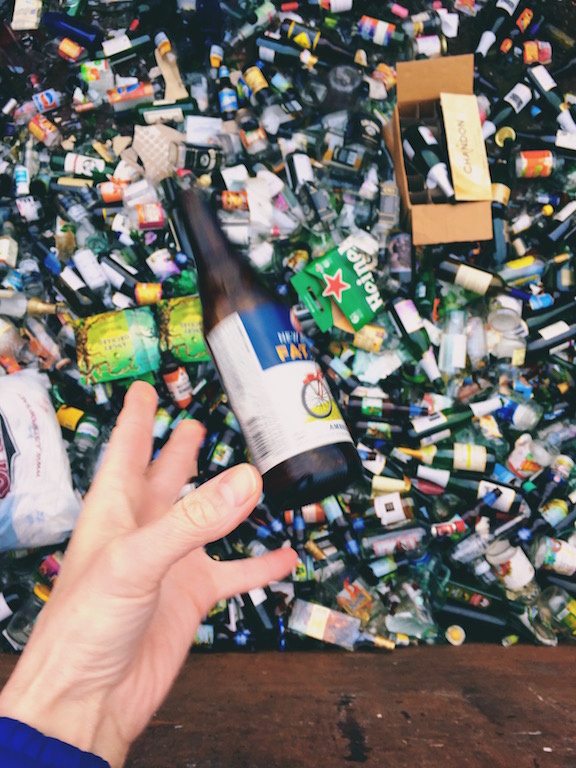Climate destabilization threatens life systems on every continent, affecting our food security, plunging low-income communities into deeper poverty, creating widespread disease and economic instability, not to mention unprecedented natural disasters. Industrial toxins, plastics, and biochemicals contaminate our seas, our air, and our food. Lowering our carbon emissions is a global priority for the 21st century. Through irresponsible uses of technology and rapid industrialization we have changed the face of our planet, disregarding our core ecological relationships, causing a devastating environmental crisis.
Systems Thinking: Earth Partnership Technologies
 Those who fight environmental regulations and continue to support rampant over-consumption claim that all that is needed to solve our problems are new and better technologies. But environmental degradation and injustice are often actually the result of these kinds of "solutions."
Those who fight environmental regulations and continue to support rampant over-consumption claim that all that is needed to solve our problems are new and better technologies. But environmental degradation and injustice are often actually the result of these kinds of "solutions."
The earth itself is our primary economy. A new systems awareness that values the earth and recognizes that we are all interconnected is needed in every institution: family, economics, education, politics, healthcare, and religion. Awareness of a working Partnership orientation will transform our culture's criteria of what is valued, resulting in a gradual shift toward laws that protect our environment, renewable resource funding and development, and food-growing and manufacturing processes that avoid waste and pollution.
A History of Domination
 The underlying issue is the Domination culture in which our industrial technologies developed. Over-consumption is inherent in domination-oriented societies where consumption is a symbol of power and control is a substitute for emotional and spiritual fulfillment. If we believe in the Domination ethos of "man's conquest of nature," or a "resource/use mentality", we will continue to do irreparable harm. If we create regenerative Partnership relationships with nature, technology could vastly improve our lives and the capacity of the earth to heal and re-balance its systems.
The underlying issue is the Domination culture in which our industrial technologies developed. Over-consumption is inherent in domination-oriented societies where consumption is a symbol of power and control is a substitute for emotional and spiritual fulfillment. If we believe in the Domination ethos of "man's conquest of nature," or a "resource/use mentality", we will continue to do irreparable harm. If we create regenerative Partnership relationships with nature, technology could vastly improve our lives and the capacity of the earth to heal and re-balance its systems.
"We are all part of an exquisitely interwoven web of life that is part of a resurging partnership consciousness. Deep inside we all carry this consciousness, it lies behind the profound connection many of us feel with nature." - Riane Eisler, The Power of Partnership
Economic Rules
 Our present economic system depends on fossil-fuel resources that are terminal. It is a system caught in a cycle of over-consumption and despoliation. As long as businesses do not include in the cost of manufacturing that economists call "externalities" — such as the cost to our environment, caused by damaging industrial processes — we cannot curtail activities that pollute or exacerbate climate change.
Our present economic system depends on fossil-fuel resources that are terminal. It is a system caught in a cycle of over-consumption and despoliation. As long as businesses do not include in the cost of manufacturing that economists call "externalities" — such as the cost to our environment, caused by damaging industrial processes — we cannot curtail activities that pollute or exacerbate climate change.
We need economic policies that support Partnership relations and the implementation of climate agreements. We must support environmentally responsible corporate charters, international treaties that include diverse and indigenous voices and protect ecological integrity, and new economic rules that accord value to the work of caring for the earth. We need economic policies that care for people and planet.
CPS's Social Wealth Index (SWI) is working to create measurable indicators that uphold climate agreements. Both the SWI and the Partnerism Movement are part of a caring economy that ensures a more resilient and equitable economy.
Ecological Systems: Working Toward Justice
Environmental justice, food and water security, the protection of our health, renewable energy sources, and natural environment requires cultural and economic changes, both big and small. Changing our own habits of thinking and living contributes to change. Joining together to make our voices heard can impact business and government policies.
Things to Do
- Connect with local organizations advocating sustainable technology and economic/business practices.
- Use your voice: write, speak, teach, and contribute to media projects that demonstrate how a shift to Partnership Systems will bring us back into embodied relationship with earth systems.
- Learn about your local food security: tour an organic community supported agriculture farm or a school garden that donates food to a local food bank.
- Support political policies and candidates that advocate for a holistic approach linking environmental protection, food security, rapid de-escalation of fossil fuel use, support for communities marginalized by environmental and economic injustice, ecoliteracy, and our core human values -- all integral to creating a caring economy.
Educate Yourself
The Real Wealth of Nations: Creating a Caring Economy by Riane Eisler
The Power of Partnership (Chapter Six: From Mother Earth to Biotechnology), by Riane Eisler
Visit the Children's Environmental Health Network
Watch the webinar: Practicing Partnership with the Earth, with Ann Amberg
The Transition Town Model Interdisciplinary Journal of Partnership Studies
The Millennium Alliance for Humanity and the Biosphere
Kosmos Journal

